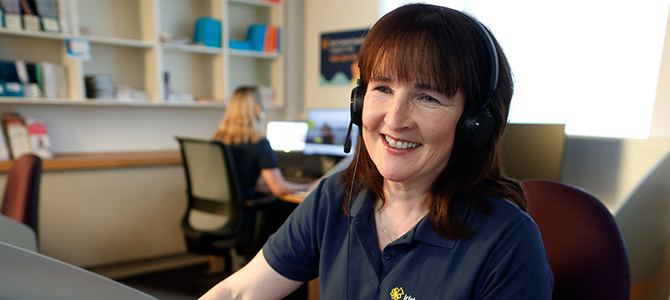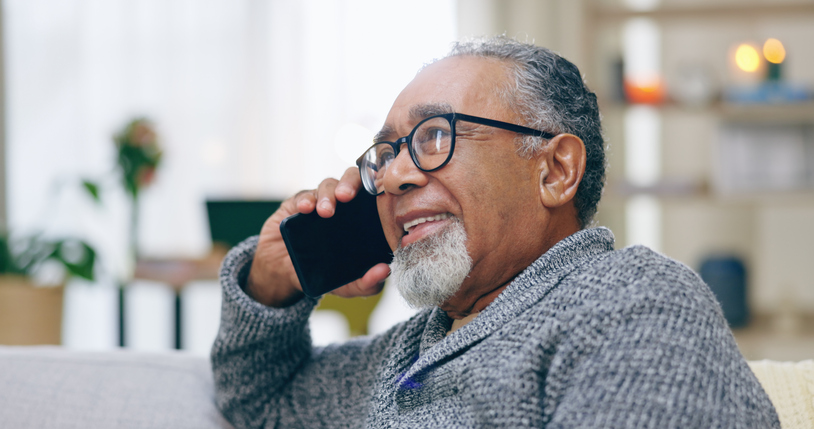Talking about cancer can help you to share worries and get support, but it can be hard. You might feel awkward, embarrassed or too upset to express yourself the way you want to. This page has tips to help you with some information on who to talk to and how to talk to children and teenagers about your diagnosis.
Coping with cancer
A cancer diagnosis brings challenges whether you've just been diagnosed or are living with a metastatic diagnosis. We're here to help. On this page you'll find links to resources to help you cope with cancer.
Talking about your cancer diagnosis
We're here for you

Coping with your diagnosis
It’s normal to feel upset when you are told that you have cancer. You are likely to experience a range of emotions throughout your diagnosis, treatment and recovery. These emotions or feelings are to be expected.
Reactions often differ from person to person and there is no right or wrong way to feel.
We have useful resources to help you cope with your feelings including what services are available and local supports in your area.
Caring for yourself
It can be very difficult to cope with a cancer diagnosis and all the changes that this can bring. Your healthcare team can offer you different types of support, but there are also things you can do yourself before, during and after treatment to help you feel as well as possible.
We have information on eating well, being active and other ways to help yourself.
Coping after cancer treatment
It isn’t unusual to feel quite low and lost after your treatment has ended, especially during the first few months. You may find that feelings you bottled up during treatment may hit you afterwards – sometimes months or years afterwards.
We have more information on what feelings you may be experiencing and tips on how to cope.
When cancer comes back, this is known as recurrence. A fear of recurrence can affect you both emotionally and physically. Some people may experience emotions such as worry, fear, anger and sadness. This fear can affect the way people behave and how they respond to situations. Some people may be on high alert and others may avoid following up on concerns or avoid talking about cancer.
We have advice on how to cope with these fears.
After a cancer diagnosis, many people want to live a healthy lifestyle.
A healthy lifestyle can help you to:
- Feel better
- Heal and recover faster
- Cope better with the side-effects of treatment
- Keep up your energy and strength
- Prevent health problems, such as heart disease, lung problems and diabetes
Research suggests that for some cancers a healthy lifestyle can lower your risk of the cancer coming back.
Learn more about living a healthy lifestyle after cancer.
Sexual relationships and cancer
Changes to your body, feeling unwell and the stress of a cancer diagnosis can all have an impact on your sexual relationships.
Learn more about sexual relationships and cancer.
Your treatment journey
Advice to help you make sense of the healthcare system, prepare for appointments and get the information you need.

Are you living with a metastatic diagnosis?
We have lots of services and information available to help you cope with a metastatic cancer diagnosis. Please don't hesitate to reach out.
Get help and support

Support Line
Our Daffodil Centres


